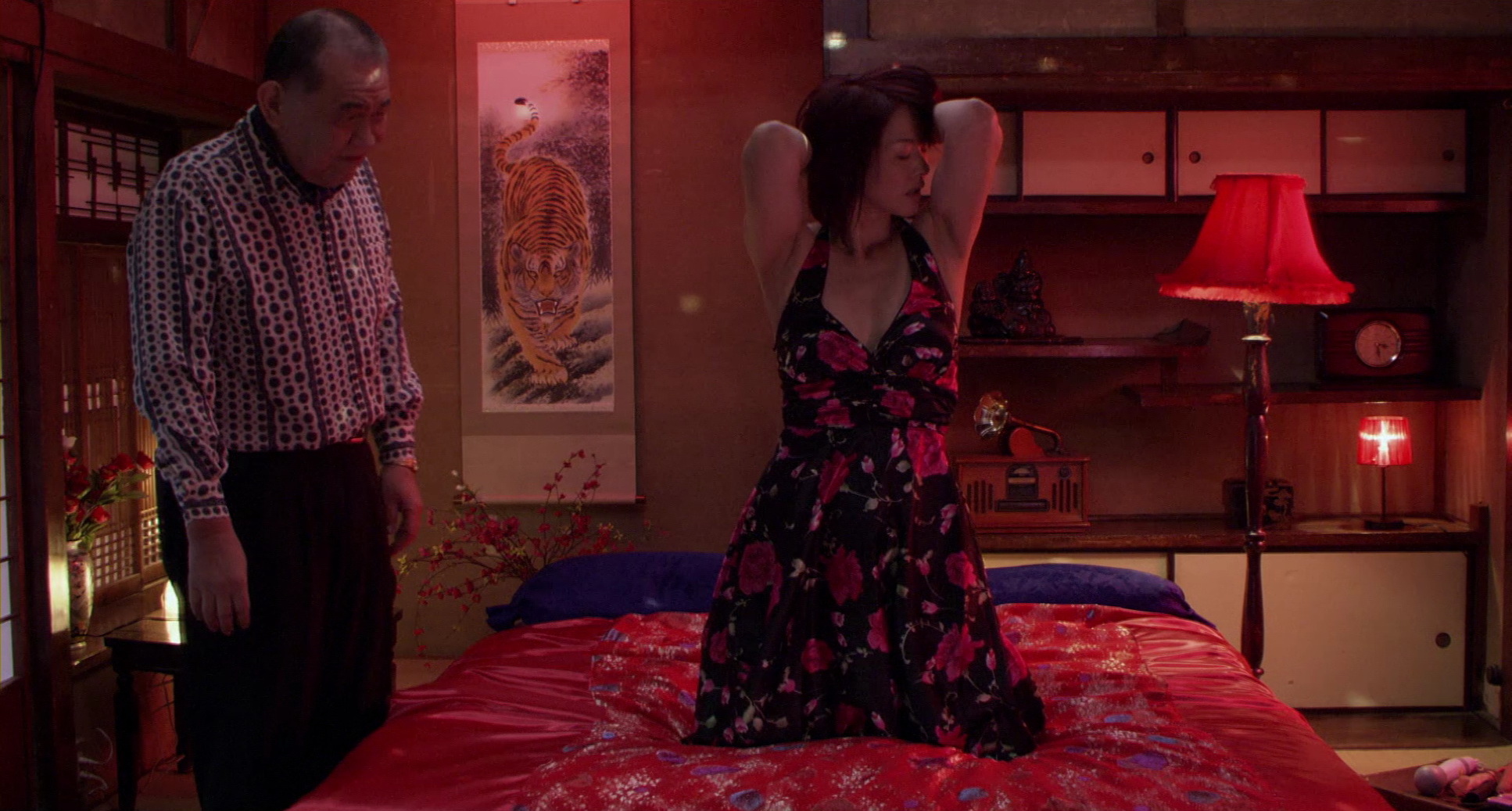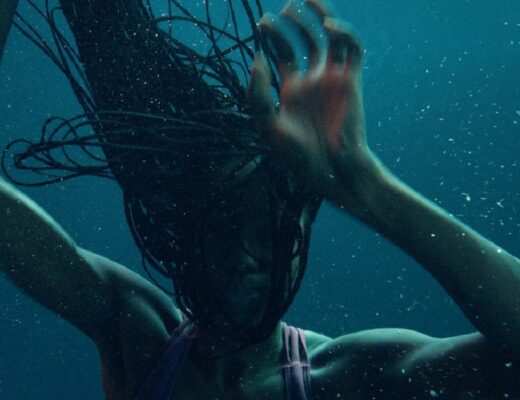One task of the critic is to place a film within the context of its artist’s entire body of work, looking for recurring themes, motifs, obsessions, etc. But the sheer breadth of Sion Sono’s filmography—coupled with those films’ sporadic (at best) distribution—leaves the average viewer with a perhaps skewed version of the director’s intentions. For better or worse, much like Takashi Miike, Sono is as a result known for his over-the-top violence and digressions into outright absurdity, sometimes coupled with extremely long running times. In a way, then, Cold Fish (which runs two hours and change—comparatively brief next to Love Exposure‘s four) provides an excellent entry point. Sono’s story of a serial killer ingratiating himself with a ‘typical’ contemporary family (i.e. deeply dysfunctional) certainly bears the stamp of Shohei Immamura (cf. Vengeance Is Mine) and Nagisa Oshima (of whom Sono is on record as being a fan). And of course the film involves a serial killer, a genre that knows no national boundaries, as well as an ‘everyman’ who gets caught up in the influence of forces he can’t control.
Sono might appear to shoot quick and loose, frequently going handheld and following action in close-up. But he’s also capable of precise formal control, a certain kind of subtlety even. The beginning of Cold Fish is shot almost like a horror film, all cramped spaces and quick, jagged cuts alternating between mostly silent interiors and a torrential downpour outside of the unhappy home—Sono is telling us this family is broken before anyone even speaks a word. The narrative ignites when a young girl, Mitsuko (Hikari Kajiwara), is caught stealing at a department store. Nobuyuki (Mitsuru Fukikoshi) and Taeko (Megumi Kagurazaka, Sono’s then-girlfriend, now wife) rush to the store to collect their thieving daughter, but the soon-revealed-to-be-insane Yukio (Denden) intervenes on their behalf, offering Mitsuko a job in his tropical fish store as a form of rehabilitation. It’s gradually revealed that Yukio wants Nobuyuki to help him defraud investors in an expensive tropical fish selling scheme, which quickly devolves into Nobuyuki becoming an accessory to murder. In due course, Yukio’s seemingly demure wife will be revealed as an equal and willing partner in her husband’s killing; Yukio will violate Nobuyiki’s wife; and Mitsuko will turn against her family to embrace her new job, and her boss.
Sono is clearly interested in a kind of toxic masculinity—patriarchy run amok. But he’s also savvy enough to suggest why such fantasies of violent control might be attractive to an emasculated nebbish.
Sono shoots Yukio’s bigger, brighter tropical fish store with an elegant, slow tracking shot, emphasizing the symmetry of the tanks that line the aisles. Conversely, Nobuyuki’s own shop is cramped, the camera moving between figures who can barely navigate the spaces between the tanks and the claustrophobic living quarters at the back of the shop. Sono also shoots several long conversation scenes as unbroken takes, darting back and forth between Nobuyuki and Yukio, and changing the framing to suggest simultaneously a camaraderie between the two men but also Yukio’s clear dominance. Ultimately, Cold Fish‘s narrative reveals itself as a means to an apocalyptic bloodbath: The last thirty minutes or so are a cacophony of sex, rape and violent dismemberment, guts and assorted viscera literally splayed across the screen. Sono is clearly interested in a kind of toxic masculinity—patriarchy run amok. But he’s also savvy enough to suggest why such fantasies of violent control might be attractive to an emasculated nebbish like Nobuyuki. In this film, everyone is both victim and predator.







